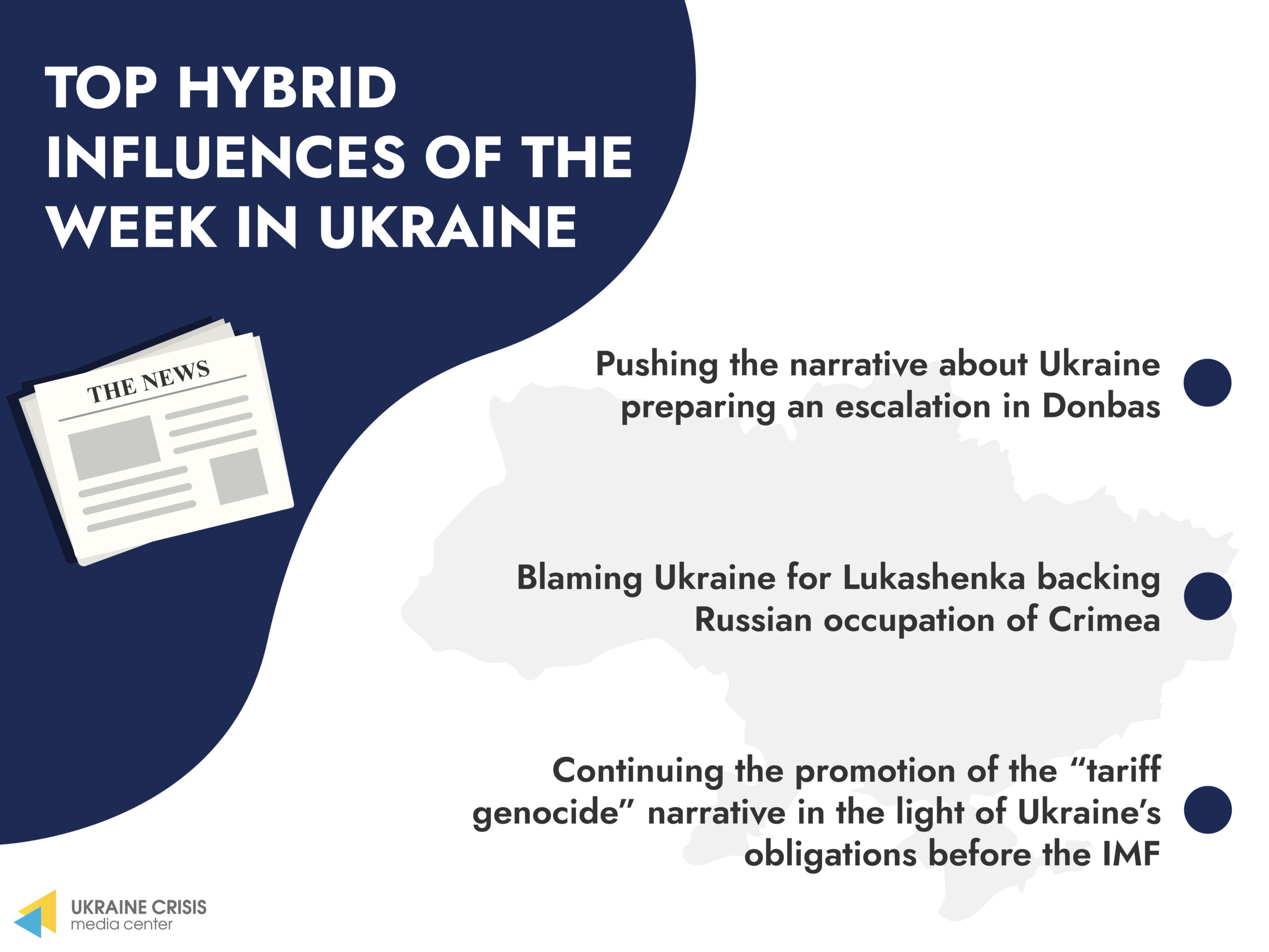The pro-Kremlin forces have intensified the promotion of the “Ukrainian aggression” narrative while the reports of Russia massing troops and weapons on the borders with Ukraine and in the occupied territories continue appearing. The disseminators of pro-Russian propaganda portray Ukraine as preparing an offensive in Donbas to create grounds for justifying Russia’s current military build-up and possible future incursion.
In the light of Lukashenka saying Crimea is “Russian de facto and de jure” in an interview with Russian propagandist Kiselev, the Kremlin’s proxies blamed Ukraine for consistently provoking the self-proclaimed Belarusian president, which led to his support of Russia. According to them, Ukraine ruined the Belarus-Ukraine relations long ago when it refused to recognize Lukashenka’s legitimacy. This aims to achieve the usual trick of Russian disinformation by shifting the blame from the aggressor, and in this case its supporter, to its victim.
The propagandistic outlets and forces continued disseminating the “tariff genocide” narrative aimed to distort the outcome of Ukraine’s obligations before the IMF after it approved another tranche to the state. This narrative is often complemented by messages about “external governance” and Ukraine losing its sovereignty. Such claims are nothing but manipulations aimed to mar Ukraine’s relations with the financial institution. They are especially promoted by the key pro-Kremlin party “Opposition Platform – For Life” in populistic rhetoric to increase its rating among future voters.



